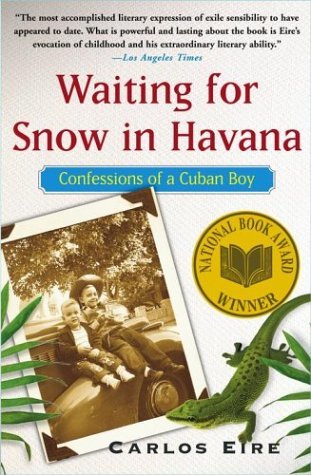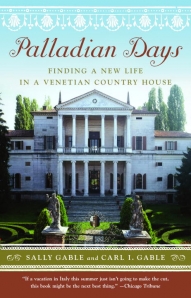This review contains affiliate links, which earn me a small commission when you click and purchase, at no extra cost to you. Thank you for supporting my small business and allowing me to continue providing you a reliable resource for clean book ratings.
I found this nonfiction book on the shelf at the thrift store. I picked it up because my new brother-in-law is Cuban, having left Cuba as a child. So when I saw Havana on the spine — I paid my 80 cents, hoping to satiate some of my new curiosity in all things Cuban.
Of course, Carlos lived in Cuba long before my brother-in-law. Carlos was a child who knew Cuba before Fidel, before the Revolution, which makes his story that much harder to read. He knew what he was losing, having grown up in a very privileged family. We go back in time to his very earliest memories — birthday parties he attended, worshiping at mass with his parents, watching movies at the theater. When the Revolution made life in Cuba a nightmare, thousands of parents shipped their children to the States, planning to follow them as soon as possible. It just didn’t work out that way. And so Carlos ends up in Miami without his parents, and that initial journey, that breathtaking leap, is just the beginning of his life as an immigrant, an exile.
Your heart cannot help but ache for this boy and what he lost. The writing is at times so exquisite, you feel like you are drowning in his memories: the sights and smells, the adventures that would delight and astonish a young boy. I feel like I KNOW that Cuba — the one that was full of life and culture, religion and a sense of Spanish grandeur, that then faded into a farce, a twisted promise of freedom that dealt out only shackles and rations.
There are painful things to read — even without the Revolution, there are parts of Carlos’ life that were traumatic. And it read surprisingly slowly for me — for some reason I could only read it in smaller doses at a time, I can’t put my finger on why. I did love when he tied in his own experiences with typical Cuban culture, and I really liked the history woven in, since I knew, apparently, absolutely nothing except its general location and the name Castro. Cuba was a COLONY? I had no idea (I should probably be embarrassed to admit that). I was surprised by how Christian it was: Jesus feels like a character in the book, Carlos discusses him so much (and for those who are sensitive to it, it’s not always in the most respectful way).
The subtitle really does fit — it does feel like a book of confessions: mistakes he made, that his family members made, that his countrymen made and, frankly, the mistakes made by the Americans who greeted him once he got here. With poetic prose and a knack for creating an amazing scene in your head, he sorted through all that STUFF until he found himself at the other end. I’m not surprised it won the National Book Award in 2003 — Waiting for Snow in Havana transports you and moves you.
Rating: Moderate, for language: a few instances of strong language but extensive references to Deity and milder language as well. Some adult content (sexual abuse and “boy talk”).
Click here to purchase your copy of Waiting for Snow in Havana on Amazon.




